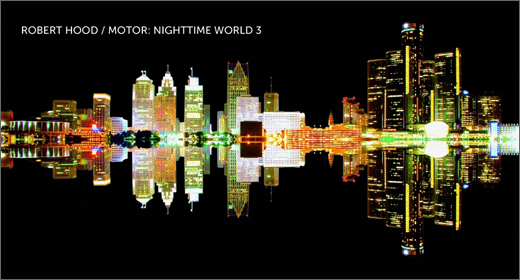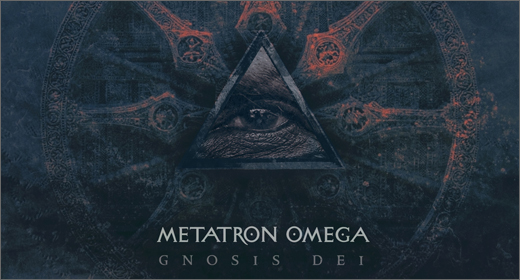
(June 2010) Robert Hood is a child of Detroit, but has grown into one of the fathers of Detroit techno. Over the years Hood’s take on techno has evolved, today centred around its minimal side. On his M-Plant imprint, Hood has freed himself from external pressures, focusing on his brand of stripped back techno. He has utilised this freedom to create his first full length release since 2003. Omega is based on the 1971 sci-fi classic The Omega Man, a movie Hood has held close to his heart since a boy; a movie that reflected the darkening husk that is modern Detroit.
Omega is unashamedly minimal. The album opens with “Alpha (The Beginning);” the track, containing the only vocals of the album, sets the scene. An echoing apocalyptic scape is painted, one where hope only exists in the past and in faith. The tracks do not mirror the movie, they are not sonorous attempts to depict Charleton Heston’s struggles or biological war terror. These pieces are Hood returning to his Detroit. “Towns That Disappeared Completely”, with its mechanical analogue piston, is a description of a Motown where the “Mo” has slowly been extirpated. The track captures the relentless onslaught of depression, beat and bass cleansing the crumbling walls of society and replacing it with roaming zombies created by a still persistent crack epidemic. “The Workers of Iniquity” builds on this, a city no longer occupied by automobile technicians and designers but one where the toil is soulless and the rewards a bitter oil shadowed cud. Yet there are glimmers of hope in this despair. Hood uses the same minimal tools to create optimism. The bludgeoning snares of “Alpha” sculpt scenes of renewal, where the “Workers of Iniquity” can repent and allow the spirit of labour to repair their wounded bodies and minds. The album, its tracks stretching unflinchingly before the listener, mixes the metaphors of The Omega Man into a Detroit paste. Through the flames and hurt Michigan’s battered heart can be “Saved by the Fire.” Through determination, generated through Hood’s relentless constructs, Detroit can overcome its Omega Man fate and be not only returned to prosperity but reborn from its historic pains and ills.
Omega sees Hood returning to his home town. His sound may have never left the borders of the Cadillac Factory or the towering awe of the General Motors building, but he did. For those techno artists who escaped the Motor City, it is a memory, one that the music harks back to but the mind is less willing. Hood, through clever comparison and unwavering walls of minimal techno, is ready for Detroit to come full circle, to escape the shackles of past wrongs and seek anew. Hood is returning to his homeland in both fantastical and real way, encouraging urban regeneration and community activism in Detroit. Techno allowed Hood to get out of the “War in the Streets” and he is undoubtedly grateful for this. Omega looks for a similar contribution from the others techno has emancipated from Michigan’s decaying grey. Maybe it’s time to look at the “War in the Streets” beyond the knobs of a synthesizer and the pre-sets of a drum machine.
Omega is out now on M-Plant. [Listen | Purchase]

























